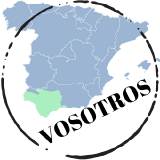3.12: Sección 2- Gramática - Los mandatos informales (tú)
- Page ID
- 162438
 |
Tener pasatiempos es bueno para ti. Para encontrar el pasatiempo perfecto: 1: Recuerda tu infancia. ¿Qué te hacía feliz de niñx? 2: Piensa en qué te hace feliz ahora. ¿Te gusta leer, cocinar, etc?.+ 3: Busca inspiración. Ve a tiendas de manualidades 4: Toma una clase de algo que te interese. 5: Considera si hacer ejercicio puede ser un pasatiempo para ti. |
|
“Zoom icono” found in Openclipart is licensed under CC0 1.0 |
|
Usos de los mandatos
The Imperative Mood is the set of verb forms Spanish uses to directly ask for actions from others. In addition to commanding someone to do something (e.g. Come más despacio, Eat slower; Bebe más agua y menos bebidas azucaradas, Drink more water and less sugary drinks) , it has other communicative functions, such as:
- making a request
- Por favor, toca la guitarra Please, play the guitar.
- making a suggestion
- Prueba cosas nuevas. Try new things
- giving encouragement or support
- Tranquilízate, que todo va a salir bien. Calm down, everything is going to be ok.
Note that the subject is almost never used with these verb forms. When it does appear, the subject generally goes after the command. (e.g. ¡Ayúdame tú!. You help me!)
Formación de los mandatos informales afirmativos
For informal tú commands, the command form is different depending on whether the command is affirmative (i.e. telling someone "yes, do this") or negative (i.e. telling them "no, don't do this"). Here, we are going to focus only on the the forms for the affirmative informal commands. They are described below.
Affirmative tú commands use the third person singular of the present indicative (that is, the usted/él/ella form):
- Ya es tarde; descansa. It is late; rest.
- Piensa antes de actuar. Think before you act.
- Sigue las instrucciones, por favor. Follow the instructions, please.
However, there are eight irregulars:
|
|||||||||
One useful trick to remember these irregulars is the phrase: "Vin Diesel has ten weapons, eh?", which is roughly what comes out when you say them quickly in this order: ven di sal haz ten ve pon sé
Mandatos afirmativos con pronombre (s)
What happens when we have direct object (e.g. lo, la), indirect object (e.g. le), and/or or reflexive (e.g. me, te, se) pronouns with a command? Where do the pronouns go?
The answer is that the pronoun(s) is/are attached at the end of the affirmative command. After object pronouns are attached, a written accent mark is added to signal the stressed syllable (which is always the third/fourth-to-last-syllable).
Ejemplos:
Si estás cansadx, relájate y descansa. If you are tired, relax and rest
Si tu amiga está estresada, llámala , o mándale un mensaje de texto e invítala a salir. If your friend is stressed out, call or text her and invite her to go out.
When two object pronouns are attached to the command, this is the order they should be in:
Command + Reflexive/ Indirect Object Pronoun + Direct Object Pronouns
Ejemplos de mandatos afirmativos con pronombres:
Lavarse las manos --> lávatelas Wash them (yourself)
Compar libros a tu mejor amiga --> cómpraselos Buy them for her
Resumen
| Forms | |
| tú, affirmative |
Regular verbs: 3rd person singular of the simple present: Irregular verbs: ven di sal haz ten ve pon sé ("Vin Diesel has ten weapons, eh?") |
| With Object Pronouns | |
|
Command + Reflexive/ I.O. Pronoun + D. O. Pronoun ¿Quieres el balón? Cómpratelo |
For information on the regional forms "vos" and "vosotros", click the images below.
 |
 |
This page adapted from 52. El modo imperativo / Commands by Enrique Yepes, licensed under CC BY-NC-SA, and from 6.1: Mandatos formales e informales by Nancy Ballesteros, Alejandro Lee, Nicolás Cristoso, & Cristina Moon through ASCCC Open Educational Resources Initiative, licensed under CC BY-NC-SA.
¡A practicar!
Actividad 1:
Reescribe las oraciones cambiando el verbo a la forma del mandato informal (tú).
Ejemplos:
Escuchar música => Escucha música. Comerse toda la comida => Cómete toda la comida.
a. Cocinar un postre a tu amigx
b. Invitar a tu novio a un partido
c. Pedir consejo sobre podcasts en español a tu profesorx
d. Probar un pasatiempo nuevo
e. Hacer amigos nuevos
- Answer
-
a. Cocina un postre a tu amigx
b. Invita a tu novio a un partido
c. Pide consejo sobre podcasts en español a tu profesorx
d. Prueba un pasatiempo nuevo
e. Haz amigos nuevos
Actividad 2: Consejos para estudiante venezolano
Eres consejero de estudiantes internacionales que van a estudiar en F&M. Contesta las preguntas de Juan Carlos, un estudiante de Venezuela usando mandatos informales afirmativos.
1. Los estudios son muy importantes para mí. ¿Qué debo hacer para tener éxito en mis clases?
2. No conozco a nadie en Estados Unidos y soy muy sociable. ¿Qué puedo hacer para conocer a otros estudiantes?
3. Me gusta mucho jugar béisbol. ¿Qué puedo hacer para jugar béisbol en F&M?
4. Me importa mucho mi salud y mi dieta. ¿Dónde puedo comer comida sana?
5. Me encanta hacer ejercicio tres o cuatro días por semana, pero ir solo al gimnasio es aburrido. ¿Qué puedo hacer?
Actividad 3: Empezar a correr
Paso 1. Tu mejor amigx quiere empezar a correr pero no tiene experiencia porque no le gusta mucho el deporte. Con tu compañerx, escribe cinco (5) consejos usando mandatos informales afirmativos. Piensa en qué problemas puede tener cuando escribas tus consejos. Usa un mínimo de tres (3) verbos de la lista.
|
calentar (warm up) |
practicar |
estirar (strech) |
ser |
planificar |
Paso 2. Mira este video y añade dos (2) consejos que no tenías.

